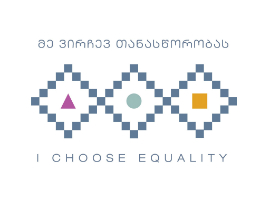Aisel Ajalieva
Nurse
"Soon after the pandemic started, personnel shortage became a serious problem in hospitals. In such a critical moment, I found myself in the intensive care unit for Covid patients. Although my family members were against it, I decided to help my colleagues. I knew I could not even wear a special shield or goggles due to my vision problems, and I had not yet been vaccinated either, which increased my risk of being infected with the virus. However, my strong desire to combat the virus with my patients outweighed all potential dangers.
I have been dreaming of wearing a white coat since I was a child. When my beloved grandmother was ill, I became motivated to help others with their recovery. However, in the village of Sartichala, Gardabani district where I lived, girls usually didn’t continue their studies after graduation. I also thought that I wouldn’t be able to achieve my dream but with the support of my parents, I am now on the path towards my dream.
I was studying in the Georgian sector of an Azerbaijani-speaking school. My parents believed and I too agree that, as a citizen of Georgia, a good knowledge of Georgian would lay the foundation for my professional and personal life, and it did. In addition to going to school, at the age of 16 I also entered a medical college and started working as a nurse’s assistant. Teachers helped me, however, because of my workload they didn’t fully believe that I’d manage to get enrolled at a university. At the age of 18, I was admitted to a medical department where language of instruction was English and I continue to work as a nurse.
I’ve been fortunate to have never been a victim of discrimination because of my ethnicity. No one at work or in school has made me feel like I have fewer opportunities because of my ethnicity. However, judging by the example of my Indian classmates it seems that society differentiates people because of their origin or other characteristics, which is wrong. How can we reject and oppress people like that, including because of not knowing the language?! A lot of support is needed to learn a language, which is one of the challenges faced by my region.
It is difficult to work at a Covid clinic. Aside from strenuous physical activity, insomnia, or special characteristics of work, it is difficult to see condition of patients deteriorating – you can see that the person can no longer breathe, but there is nothing you can do to help. Nothing can compare to happiness of a recovered patient going back home. That is why, when I become a doctor, I want to return to Sartichala and take care of health of the people in my village."





